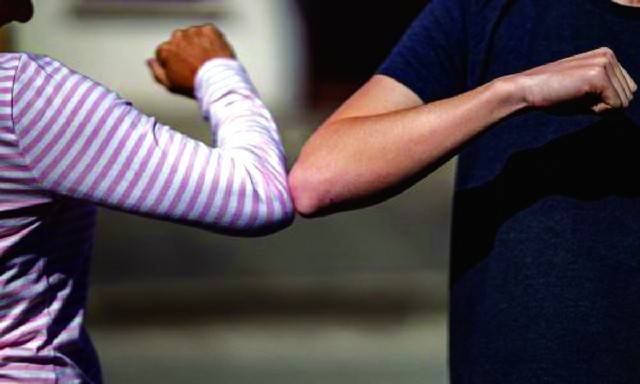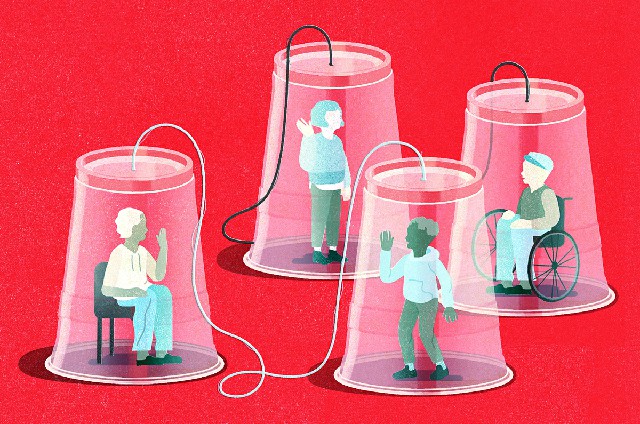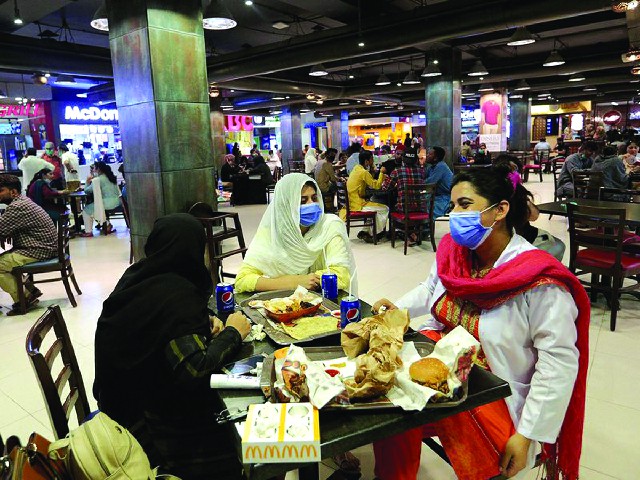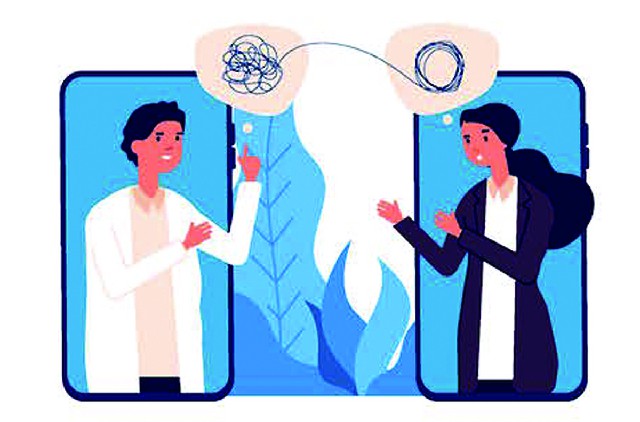
Now, I don’t mean to be facetious but one of the biggest casualties of the pandemic, in my experience, is friendships. I don’t mean physically losing friends to COVID-19, thankfully, but the actual morphing or, sadly, demise of friendships that couldn’t hold up against the strain of 2020 and beyond.
We’ve all had a lot of time on ours hands, probably more than we’ve ever had before, thanks to months of lockdown and self-isolation. I know that I, like many others, went through a cycle of disbelief, anxiety, acceptance, hope…on repeat, and continue to do so. Sometimes I wanted to surround myself with a multitude of voices on Zoom, chattering away, talking over each other, laughing hysterically, and at other times I wanted to curl up in a ball of silence for days at end. Physically, if someone mapped my journey, I probably walked 5k in a day (to the fridge), mentally I was a mess. In this state of desperation and despair, self-reflection flourished.

I always used to think I had a lot of time to invest in friendships in my life. Didn’t I spend every weekend with friends, with a brunch planned in the morning with one, lunch with another, and dinner with a third? There were coffees to be had and gigs to attend, comedy shows to be watched and birthdays to be planned. It was a case of booking weekends 3 months in advance, to make sure there was time to meet friends in a very busy, time poor environment. But maybe, just maybe, in this attempt to keep friendships alive, I surrounded myself with a lot of people who added very little value.
I’ve spoken to many (remaining) friends about friendships and one thing is clear - people mourn break ups and divorces but nobody talks about the pain of a friendship ending. Of losing a friend you’ve grown up with or have known for years, letting go of someone you have shared laughter, secrets and heartbreak with. The physical act of distancing yourself from anyone is difficult but doable, because it simply requires you to make yourself unavailable. You may get a few ‘you’re never available anymore’ messages or a missed call or two, but those peter away eventually. But the emotional toll of this self-inflicted distancing is immense, especially if the breakup is not caused by any one incident that you can use to justify the end. You have, quite simply, moved on.
If the pandemic taught us one thing, it’s to prioritise those relationships that are worth saving. So as hard as it is to put in a box those friendships that have run their course, needs must. My experience has taught me that friendships that have survived have typically shown these strengths:

Kindness: Small acts of kindness - a brownie box appearing on your doorstep, a handwritten note or a text message asking how you and your family are coping - made all the difference. With technology at our fingertips, there was no excuse not to reach out, and those that did and did so sincerely survived the biggest test of friendship – a global pandemic that left so many people lonely, isolated and unable to communicate.
Vulnerability: Surprisingly, or perhaps not so much, we opened up about our emotions. We felt (and sadly still feel) petrified of the future, and the uncertainty it brings with it. People who showed vulnerability forged new and often very strong connections. I personally found myself gravitating towards those who were not just looking for a shoulder to cry on but were also offering theirs, sometimes for weeks at end. Vulnerability sans judgment enabled us to connect.
Gratitude: “Gratitude turns what we have into enough.” I came across this quote last year and it stuck with me. We were all going through a period of collective grief and, for me, anytime I saw someone rise above it and express true gratitude, it kindled hope in me.

Positivity: My surviving friendships, I’m proud to say, are wholly positive. I don’t mean a fake Instagram-quote type of positivity, but a genuine effort to see the good in life. I have shed negative people from my life, so perhaps a ‘positive’ way of viewing the last fifteen months is to look at the gift it offered us – that of clarity. Of being able to see wrong from right, of prioritising people and relationships that are important, of culling the hangers-on and investing in the ones that care.
Friendships morph, die, flourish and grow as the tides change, just like all relationships. It’s okay to mourn them, in fact we must do so. But as hard as it is to sometimes let go, perhaps it’s time to let this pandemic take what was never going to survive anyway, and give us the strength to forge new, meaningful and hopefully stronger bonds that will prove their worth in the years to come.
The writer is a communications consultant based in London, with a degree in journalism from the University of Illinois at Urbana Champaign, USA. She has published extensively in various leading newspapers and magazines in Pakistan and abroad. She can be reached at essaslam@gmail.com.

We’ve all had a lot of time on ours hands, probably more than we’ve ever had before, thanks to months of lockdown and self-isolation. I know that I, like many others, went through a cycle of disbelief, anxiety, acceptance, hope…on repeat, and continue to do so. Sometimes I wanted to surround myself with a multitude of voices on Zoom, chattering away, talking over each other, laughing hysterically, and at other times I wanted to curl up in a ball of silence for days at end. Physically, if someone mapped my journey, I probably walked 5k in a day (to the fridge), mentally I was a mess. In this state of desperation and despair, self-reflection flourished.

I always used to think I had a lot of time to invest in friendships in my life. Didn’t I spend every weekend with friends, with a brunch planned in the morning with one, lunch with another, and dinner with a third? There were coffees to be had and gigs to attend, comedy shows to be watched and birthdays to be planned. It was a case of booking weekends 3 months in advance, to make sure there was time to meet friends in a very busy, time poor environment. But maybe, just maybe, in this attempt to keep friendships alive, I surrounded myself with a lot of people who added very little value.
I’ve spoken to many (remaining) friends about friendships and one thing is clear - people mourn break ups and divorces but nobody talks about the pain of a friendship ending. Of losing a friend you’ve grown up with or have known for years, letting go of someone you have shared laughter, secrets and heartbreak with. The physical act of distancing yourself from anyone is difficult but doable, because it simply requires you to make yourself unavailable. You may get a few ‘you’re never available anymore’ messages or a missed call or two, but those peter away eventually. But the emotional toll of this self-inflicted distancing is immense, especially if the breakup is not caused by any one incident that you can use to justify the end. You have, quite simply, moved on.
Maybe, just maybe, in this attempt to keep friendships alive,
I surrounded myself with a lot of people who added very
little value
If the pandemic taught us one thing, it’s to prioritise those relationships that are worth saving. So as hard as it is to put in a box those friendships that have run their course, needs must. My experience has taught me that friendships that have survived have typically shown these strengths:

Kindness: Small acts of kindness - a brownie box appearing on your doorstep, a handwritten note or a text message asking how you and your family are coping - made all the difference. With technology at our fingertips, there was no excuse not to reach out, and those that did and did so sincerely survived the biggest test of friendship – a global pandemic that left so many people lonely, isolated and unable to communicate.
Vulnerability: Surprisingly, or perhaps not so much, we opened up about our emotions. We felt (and sadly still feel) petrified of the future, and the uncertainty it brings with it. People who showed vulnerability forged new and often very strong connections. I personally found myself gravitating towards those who were not just looking for a shoulder to cry on but were also offering theirs, sometimes for weeks at end. Vulnerability sans judgment enabled us to connect.
Gratitude: “Gratitude turns what we have into enough.” I came across this quote last year and it stuck with me. We were all going through a period of collective grief and, for me, anytime I saw someone rise above it and express true gratitude, it kindled hope in me.

Positivity: My surviving friendships, I’m proud to say, are wholly positive. I don’t mean a fake Instagram-quote type of positivity, but a genuine effort to see the good in life. I have shed negative people from my life, so perhaps a ‘positive’ way of viewing the last fifteen months is to look at the gift it offered us – that of clarity. Of being able to see wrong from right, of prioritising people and relationships that are important, of culling the hangers-on and investing in the ones that care.
Friendships morph, die, flourish and grow as the tides change, just like all relationships. It’s okay to mourn them, in fact we must do so. But as hard as it is to sometimes let go, perhaps it’s time to let this pandemic take what was never going to survive anyway, and give us the strength to forge new, meaningful and hopefully stronger bonds that will prove their worth in the years to come.
The writer is a communications consultant based in London, with a degree in journalism from the University of Illinois at Urbana Champaign, USA. She has published extensively in various leading newspapers and magazines in Pakistan and abroad. She can be reached at essaslam@gmail.com.


